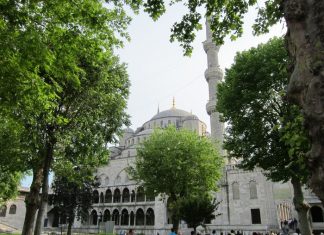Constantine felt somewhat the same sensation he remembered experiencing once, when he had watched a swaying serpent in the process of being charmed out of its basket by the wailing notes of a flute in the hands of an old magician in the East. Then an alien sound intruded into his consciousness two quick raps on the door, followed by a brief pause and a third. It was the signal from Dacius that Fausta should go.
“Be as daring in Britain as you were against the Persians, dearest,” she said, standing on tiptoe to kiss him goodbye. “Before you know it, you will be proclaimed Augustus there and I will hasten to your side.”
“What if your father still refuses?”
“Don’t worry; I can always get around him. If I have to, I’ll even run away.”
‘Then why not go with me now?”
“But darling!” Her eyes opened wide. “Who would trouble to run a race, if the prize were his before he started?”
He bite of winter was already in the salt air when Constantine and Dacius topped a rise one afternoon and looked down upon the bustling port city of Gesoriacum. A swift military galley had brought them from Neapolis to the mouth of the river Rhdne, where they had transferred to an almost equally swift vessel for the upstream trip to Lugdunum, military headquarters of central Gaul and a major city in its own right.
Father’s capabilities as a ruler
Had he not known his father’s capabilities as a ruler, Constantine might have been amazed at the evidence of prosperity and peace everywhere. Growing towns lined the river, with fertile farms and groves between, and a fine network of Roman roads connected those centers not joined by the water artery and its tributaries. These latter, he was told by the galley’s captain, were so extensive that goods and passengers could be carried upon them to within thirty miles of a tributary of the other great river in the north, the Rhenus, or Rhine, there to be transshipped for further passage by water. At least half the traffic on the river was military and at the cities along its banks where they stopped, they learned that more men and goods were moving across country by land, all directed toward the coast, where Constantius was building up an army for the campaign in Britain.
The city of Gesoriacum was the most important port on the channel called the Fretum Gallicum, because of its location near the narrowest part of that vital water barrier. It ranged along some hills beside a river mouth, but the water of the harbor could barely be seen for the large number of galleys and merchantmen anchored there. A passing soldier directed them to Roman headquarters in a building overlooking the port, and the purple ribbons with which Constantine’s orders were tied opened every door, so he and his father were soon embracing each other in greeting.
Read More about Piet rebellion








